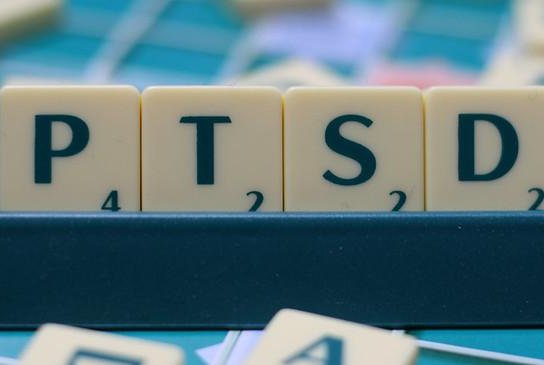MRI boosted by machine learning reveals changes in brains of women with PTSD, a new study has found. Photo by PlusLexia.co/Flickr
Sept. 25 (UPI) -- A new machine learning approach added to conventional magnetic resonance imaging can identify the regions of the brain causing dissociative symptoms in people with post-traumatic stress disorder, researchers found in a study published Friday by the American Journal of Psychiatry.
Although MRI has long been used to document changes in the brain that occur as a result of a number of neurological conditions, bolstering the approach with machine learning enabled researchers to uncover and measure changes in functional connections between different regions of the brain in women with PTSD.
These altered connections correlated with their dissociative symptoms, including memory loss or amnesia, the researchers said.
"This new work may help us to establish a new standard of care for traumatized patients with PTSD who struggle with significant symptoms of dissociation," study co-author Dr. Milissa Kaufman, director of the Dissociative Disorders and Trauma Research Program at McLean Hospital, said in a statement.
PTSD is a mental health disorder that occurs following trauma -- violent personal assaults, natural or human-caused disasters, accidents and military combat, for example -- according to the National Institute of Mental Health.
About one-half of all Americans experience some form of trauma over the course of their lives, the agency estimates. However, PTSD only develops in about 3% of men and about 6% of women.
People with severe PTSD can have difficulty functioning at work, at home and socially. Symptoms include persistent, frightening thoughts and memories, sleep problems or being easily startled.
In addition, dissociative symptoms -- such as amnesia, experiencing an out-of-body experience or feeling emotionally numb -- are common in people with PTSD and are believed to be coping mechanisms, according to Kaufman and her colleagues.
Although experiencing these symptoms intensely or for a long time can negatively impact an individual's ability to function, it has historically been difficult to prove they exist, as conventional MRI fails to spot any changes in brain function, the researchers said.
As a result, clinicians often fail to ask patients about them, or effectively treat them, they said.
For this study, the researchers applied a novel machine-learning -- or artificial intelligence -- technique to functional MRI tests of 65 women with histories of childhood abuse and current PTSD.
The technique was developed by one of the study co-authors, Meiling Li, of the Athinoula A. Martinos Center for Biomedical Imaging at Massachusetts General Hospital.
The refined MRI approach allowed the researchers to objectively measure patient's dissociative symptoms based on "fingerprints" spotted in connections involving the brain's default mode and frontoparietal control networks, they said.
These findings may eventually enable clinicians to better tailor treatments to manage these symptoms, by targeting these connections, the researchers said.
"We hope that this biological evidence will be particularly compelling regarding the legitimacy of these psychiatric symptoms," study co-author Lauren A.M. Lebois, director of neuroimaging at McLean Hospital, said in a statement.
"This moves us one step closer to identifying a 'fingerprint' of dissociation in the brain that could be used as an objective diagnostic tool," she said.















